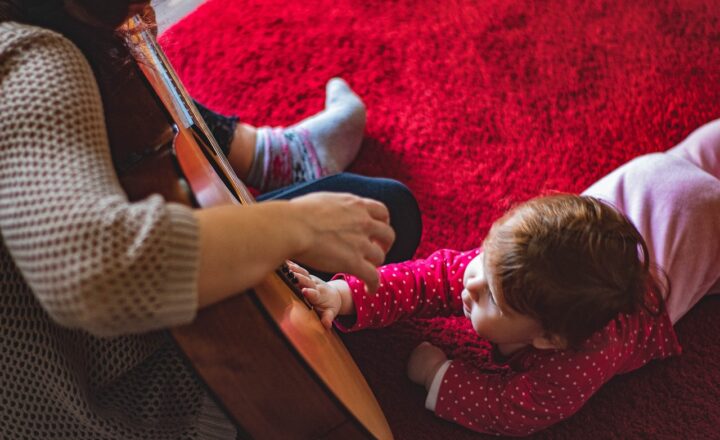
Creating a harmonious and joyful family life doesn’t require monumental changes; often, it’s the small habits that make the most difference. By incorporating some intentional practices, families can foster stronger relationships, reduce stress, and cultivate a happier home environment. Here are ten simple habits to help you nurture happiness and connection within your family.
1. Prioritize Quality Time Together
In our fast-paced lives, carving out dedicated family time can be challenging. However, setting aside uninterrupted quality time strengthens family bonds and allows for meaningful connections.
- Weekly Family Nights: Set one evening a week for a family activity like game night, movie night, or a family meal where everyone participates in preparing and enjoying the food together.
- Technology-Free Zones: Designate certain areas of the house as tech-free to ensure that family members focus on each other rather than screens.
- Daily Check-Ins: Take a few minutes each day to check in with each family member about their day, sharing highs and lows to encourage open communication.
2. Foster Open Communication
Open communication is crucial for resolving conflicts, expressing feelings, and building trust. Encourage everyone in the family to share their thoughts, listen actively, and validate each other’s perspectives.
- Practice Active Listening: When a family member is talking, give them your full attention. Avoid interrupting and acknowledge their feelings, even if you may not agree.
- Encourage Honesty: Create a safe space for sharing feelings without fear of judgment, reinforcing that honesty is valued in your family.
- Hold Family Meetings: Regular family meetings give everyone a platform to discuss issues, plans, and goals, promoting inclusivity and teamwork.
3. Show Appreciation Regularly
A little appreciation goes a long way in creating a positive family atmosphere. When family members feel appreciated, they are more likely to reciprocate positive behavior, leading to a cycle of kindness and gratitude.
- Express Verbal Appreciation: Thank family members for their efforts, whether it’s for helping around the house or offering support. A simple “Thank you” can mean a lot.
- Celebrate Small Wins: Recognize achievements, big or small, and celebrate them together as a family to foster a supportive environment.
- Encourage Acts of Kindness: Promote small acts of kindness within the family, like leaving notes of encouragement or helping each other with tasks.
4. Create Healthy Routines
Routines create structure and security, especially for children. Consistent routines can improve productivity, reduce stress, and enhance family happiness.
- Bedtime Routine: A predictable bedtime routine helps everyone wind down and ensures that family members get enough sleep, which is essential for a positive mood.
- Meal Times Together: Eating meals as a family has been shown to strengthen family bonds and allows for open communication.
- Weekly Planning Sessions: As a family, review schedules and set goals for the week, which can reduce stress and make everyone feel organized.
5. Encourage Physical Activity
Exercise benefits not only physical health but also mental well-being. Engaging in physical activities together as a family can help release stress and create happy memories.
- Family Fitness Challenges: Create simple, fun challenges like a step count competition or a family walk after dinner.
- Outdoor Adventures: Plan regular outings like hiking, biking, or even a walk in the park to encourage everyone to enjoy fresh air and physical activity.
- Dance Parties: Turn on some music and have a family dance party, which is an easy way to have fun and burn off some energy indoors.
6. Practice Gratitude Together
Gratitude is a powerful tool for happiness. When practiced as a family, it can shift the focus from what’s lacking to what’s fulfilling, creating a more positive family dynamic.
- Gratitude Jars: Set up a jar where family members can drop in notes of things they’re grateful for, then read them together at the end of the week or month.
- Daily Gratitude Moments: Take turns sharing one thing you’re thankful for each day, creating a habit of positivity and appreciation.
- Gratitude Letters: Occasionally write letters of gratitude to each other, expressing appreciation for the little things.
7. Practice Kindness and Empathy
Teaching kindness and empathy helps children develop emotional intelligence and makes the family unit stronger and more resilient.
- Model Kindness: Show kindness and empathy in your own actions, as children learn from observing their parents and siblings.
- Teach Conflict Resolution: Instead of punishing disagreements, guide family members on how to resolve conflicts calmly and empathetically.
- Volunteer Together: Participate in community service as a family to foster empathy and show the importance of helping others.
8. Create Family Traditions
Traditions give families something to look forward to and provide a sense of identity and continuity. These rituals can be simple but meaningful, bringing joy and unity.
- Weekly Traditions: Have a weekly movie night, Sunday brunch, or other ritual that everyone looks forward to.
- Celebrate Special Days: Create family traditions for birthdays, holidays, and even small achievements.
- Storytelling Nights: Share family stories or memories together, helping younger generations feel connected to their heritage.
9. Support Each Other’s Interests and Goals
Encouraging each family member’s interests shows that you care about their happiness and growth. This support fosters self-confidence and independence, creating a family environment that values individual passions.
- Celebrate Individual Achievements: Recognize each person’s accomplishments, no matter how small, and celebrate them as a family.
- Provide Encouragement: Offer words of encouragement and be present during milestones, like school presentations or recitals.
- Attend Each Other’s Events: Make an effort to support family members by attending events or activities they are passionate about.
10. Practice Self-Care as a Family
Happiness begins with self-care. Encourage each family member to prioritize their mental and physical health, fostering an environment where everyone feels supported and valued.
- Mindfulness Practices: Practice mindfulness or meditation together to create a sense of calm and improve mental well-being.
- Healthy Eating Together: Prepare healthy meals as a family and discuss the importance of good nutrition for overall health.
- Encourage Alone Time: Encourage family members to take time for themselves, whether through reading, hobbies, or quiet reflection.
Conclusion
Building a happier family life is about adopting small, intentional habits that bring joy, reduce stress, and strengthen bonds. From gratitude and open communication to creating family traditions and supporting each other’s goals, each habit contributes to a more connected and supportive family environment. By practicing these habits, you’ll not only create a happy family but also instill values that your children will carry forward, helping to create a happier world.







